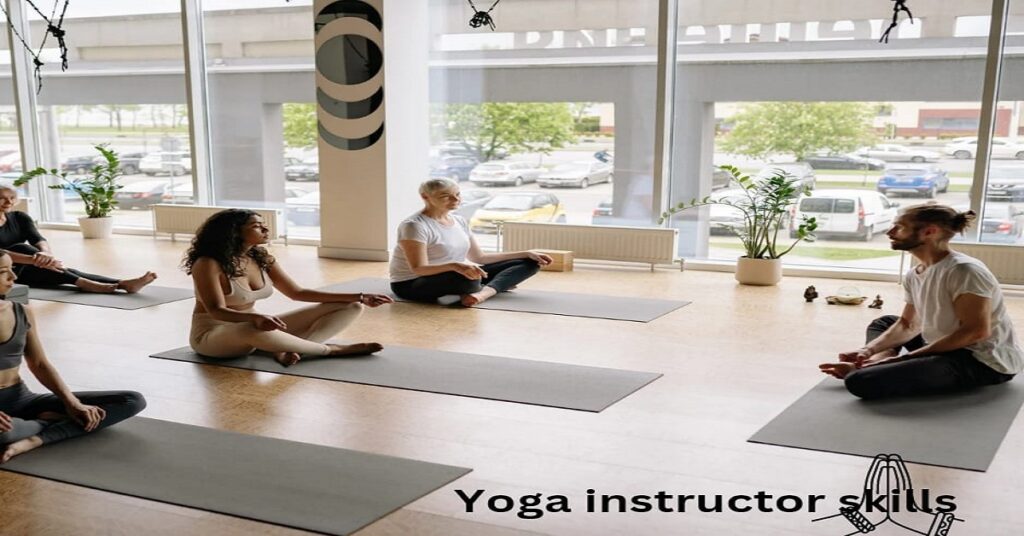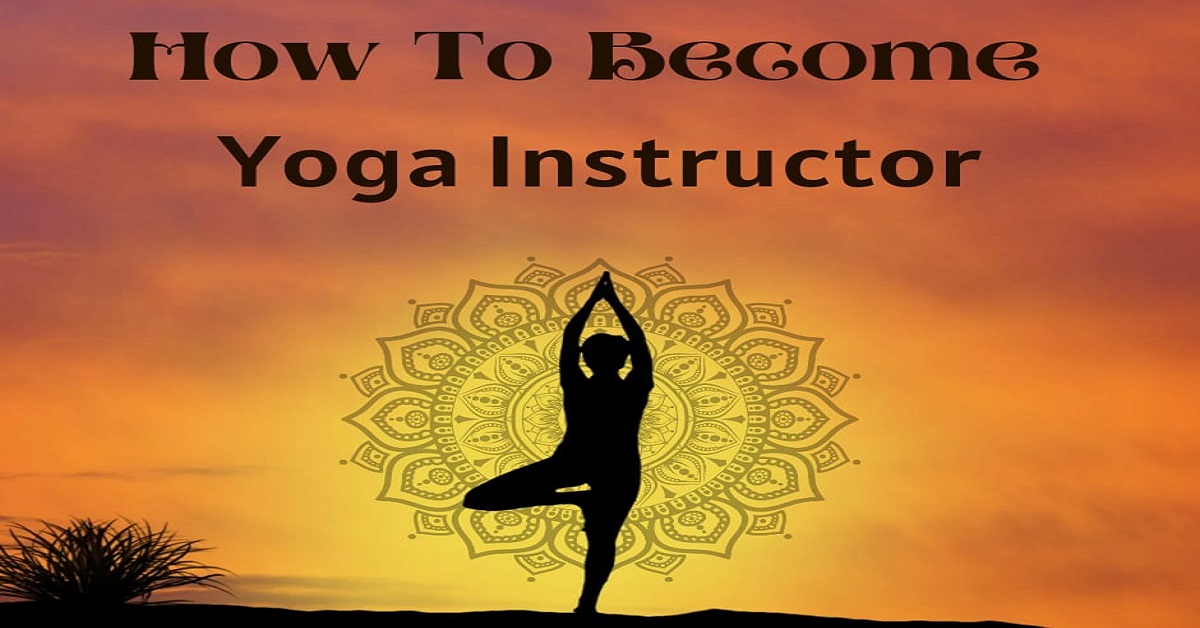Embarking on a career as a yoga teacher not only offers a fulfilling and meaningful profession but also equips individuals with the knowledge and skills to make a positive impact on people’s lives. With yoga’s immense potential for physical and mental well-being, the role of a yoga teacher holds great significance in today’s society. Read more career blogs at college49.
Who is a Yoga Instructor?
The ancient practice of yoga, originating from the Sanskrit word meaning ‘union,’ offers a multitude of health benefits by fostering a harmonious integration of the spirit, body, and mind through the practice of asanas, meditation, and breathing exercises. In the contemporary world, individuals across all age groups are embracing yoga as a means to enhance their overall well-being. Consequently, the prospect of embarking on a fulfilling career as a certified yoga teacher has become increasingly captivating. Delve into this enlightening blog to uncover the path toward becoming a certified yoga teacher and realize your aspirations in this noble profession.
what does a Yoga Instructor do?
In the realm of fitness instruction, a yoga teacher emerges as a skilled professional, an expert guide proficient in the intricate realm of yoga practice. The duty bestowed upon them revolves around the transmission of knowledge and mastery in the vast array of postures, stretches, breathwork, and meditative rituals. Moreover, their endeavor extends to the nurturing of mindfulness among their students, while concurrently offering guidance on the vital aspect of nutrition and dietary necessities for dedicated adherents to the yoga discipline.
Enveloped within their domain lies a multitude of responsibilities that are customary for the esteemed position of a yoga teacher. Let us delve into the intricacies of these responsibilities, which collectively contribute to the profound impact they have on their students:
Guidance for Individuals or Groups: The multifaceted role of a yoga teacher encompasses the provision of sagacious guidance to individuals or collectives, catering to the diverse spectrum of practitioners, ranging from neophytes embarking on their first foray into yoga, to intermediates seeking to deepen their practice, and even seasoned professionals in the art of yogic discipline.
Demonstration of Techniques: Their adeptness in their craft is exhibited through their artful demonstration of the intricacies involved in the correct execution of yoga techniques. Furthermore, their expertise extends to the provision of alternative asanas and exercises, ensuring that inclusivity prevails, and individual needs are accommodated with utmost care and consideration.
Proffering Invaluable Wisdom: A treasure trove of sagacity lies within the arsenal of a yoga teacher, as they bestow upon their students insightful advice and profound recommendations, which serve to enhance and elevate the practitioners’ yoga journey, rendering it both accessible and invigorating, in alignment with their unique capabilities and aspirations.
Posture Correction and Nurturing Wholesome Habits: Diligently and observantly, they engage in the perceptive art of scrutinizing and rectifying their students’ postures, underscoring the paramount importance of not only the physical aspects of the practice but also the holistic cultivation of a healthy lifestyle, which harmoniously intertwines with the noble discipline of yoga.
Cultivating the Essence of Mindfulness: A pivotal facet of a yoga teacher’s vocation is to ardently cultivate and foster the invaluable virtue of mindfulness. This is deftly accomplished through the wholehearted encouragement of regular meditation exercises and the dissemination of knowledge regarding the efficacious techniques of rhythmic and conscious breathing.
Dissemination of Yoga’s Origins and Profound Tenets: Drawing from the wellspring of wisdom encapsulated within the sacred Indian scriptures and mythologies, a yoga teacher embarks on a profound journey, sharing the profundity of their knowledge pertaining to the historical underpinnings, the fundamental principles, and the transformative teachings that lay at the very core of the ancient art of yoga.

What Do Yoga Instructor Skills Have?
Yoga, as a discipline, embodies the core values of intuition, peacefulness, and self-awareness. These values hold immense importance and serve as fundamental qualities for every yoga instructor. In addition to these values, several essential traits are crucial for achieving success as a yoga teacher. These traits encompass:
- Good communication skills
- Patience
- Flexibility
- Adaptability
- Engaging with Students
- Core knowledge of yoga
- Punctuality
- Inclusiveness
What are the Eligibility Criteria for a Yoga Instructor?
The eligibility criteria for Yoga courses vary depending on the level of study. Here is a tabular representation of the eligibility criteria for Yoga courses at different levels:
| Yoga Courses | Eligibility Criteria |
|---|---|
| Certificate Yoga Courses | A student should have passed 10+2 from any stream (Science, Commerce, or Arts) with a minimum aggregate score of 50%. |
| Diploma Yoga Courses | Candidates must have passed class 12th in any stream from a recognized board. |
| Undergraduate Yoga Courses | Minimum of 50% marks in 10+2 from a recognized board. |
| Postgraduate Yoga Courses | A bachelor’s degree holder in a Yoga-related discipline, such as BA or BSc, with a minimum score of 50% from a recognized university. |
| Doctorate Yoga Courses | A master’s degree holder in a relevant Yoga specialization or an MBBS degree holder with a minimum score of 50% marks from a recognized university. |
What is the qualification of a Yoga Instructor?
To become a successful certified yoga teacher, you have the freedom to pursue a bachelor’s or master’s degree in any field of your choice. However, it is highly recommended to opt for a degree program in yoga or a related field to acquire comprehensive knowledge of its various aspects.
The following qualifications are typically required:
- Minimum Age Requirement: You must be at least 18 years old to pursue certification courses in yoga teaching.
- Complete Training and Obtain Certification: It is essential to undergo training from a registered yoga school and successfully earn a certification. These programs equip you with the necessary skills and knowledge to teach yoga effectively.
- CPR/First Aid Certification: Acquiring certification in CPR (Cardiopulmonary Resuscitation) and first aid is often a prerequisite for yoga teachers. This ensures the safety and well-being of students in case of any emergency situations.
- Certification Maintenance and Renewal: It is important to maintain and renew your certifications as and when required. This may involve participating in continuing education programs, workshops, or seminars to stay updated with the latest advancements and trends in the field of yoga teaching.
What are the courses of a Yoga Instructor?
Yoga certificate courses are short-term programs that can be pursued after completing 10+2 from any stream (Science, Arts, or Commerce) in both online and offline modes. These courses vary in duration, ranging from 1 hour to 1 year. Here is a tabular representation of some popular yoga certificate courses, their duration, and average fees:
| Course Name | Duration | Average Fees |
|---|---|---|
| Certificate in Yoga Education (CYEd) | 3 to 6 months | INR 12,000 |
| Certificate Course in Therapy Yoga by Patanjali University | 6 months | INR 20,000 |
| Yoga: Online Yoga Course for Beginners by Udemy | 1 hour | INR 790 |
| Undergraduate Certificate in Yoga by RA Podar College of Commerce and Economics | 6 months | INR 500 |
| Certificate Course in Yoga | 1 month to 1 year | INR 5,000 to INR 1,00,000 |
After completing class 12th, students have the option to pursue yoga courses at the diploma and undergraduate levels. Here are some popular yoga courses after the 12th, along with their duration and average fees:
| Course Name | Duration | Average Fees |
|---|---|---|
| Diploma in Yoga | 1 year | INR 22,500 |
| Diploma in Yoga and Physical Education | 1 year | INR 27,000 |
| Diploma in Yoga Teacher Training | 1 year | INR 15,000 |
| Diploma in Yoga and Ayurveda | 1 year | INR 25,000 |
| Diploma Course in Yoga Education | 1 year | INR 20,000 |
| Bachelor of Naturopathy & Yogic Science (BNYS) | 4.5 years | INR 90,000 |
| BA in Yoga | 3 years | INR 25,000 |
| BSc in Yoga | 3 years | INR 40,000 |
| BA (Yoga and Naturopathy) | 3 years | INR 35,000 |
| BA Yoga Shastra | 3 years | INR 25,000 |
After graduation, students can pursue yoga courses at the postgraduate diploma and master’s level. Here are some popular yoga courses after graduation, along with their duration and average fees:
| Course Name | Duration | Average Fees |
|---|---|---|
| PG Diploma in Yoga | 1 to 2 years | INR 4,00,000 |
| PG Diploma in Yoga Therapy | 1 to 2 years | INR 50,000 |
| MA in Yoga | 2 years | INR 25,000 |
| MSc in Yoga | 2 years | INR 1,00,000 |
| Ph.D. in Yoga | 3 years | INR 50,000 |
Various websites and institutions offer online yoga courses for teachers and individuals interested in daily yoga practice. These courses provide routines of different yoga asanas, meditation techniques, and information about their benefits. The duration of these courses can range from a few hours to several months, and some of them offer certification upon completion. Some well-known online yoga course providers include:
- Sampoorna Yoga
- Rag Yoga
- Rishikesh Yoga Teacher Training Center
- Himalaya Yoga Valley
- KaivalyaDhama
- Udemy
What are the different types of Yoga Instructors?
In the field of yoga, there are various job opportunities available for professionals in both the public and private sectors. Some of the popular work profiles related to the field of yoga include:
- Yoga Instructor
- Yoga Therapist
- Yoga Teacher
- Yoga Aerobics Instructor
What is the Salary of a Yoga Instructor?
The salary of a yoga teacher in India can vary based on factors such as experience, specialization, and whether they work in a government or private organization. Here are some average salary ranges for yoga teachers and related job roles:
Average Annual Salary:
| Yoga Teacher in Government Organization | Approximately INR 1.2 – 2 lakhs |
| Yoga Teacher in Private Organization | Approximately INR 2-3 lakhs |
Specialization-wise:
| Yoga Instructor | Initial salary ranging from approximately INR 97,000 to 3 lakhs |
| Yoga Therapist | Initial salary ranges from approximately INR 97,000 to 3 lakhs |
| Yoga Teacher | Initial salary ranges from approximately INR 1-3 lakhs |
Experience-wise:
- Salary of a Fresher:
| Yoga Instructor | Approximately INR 4.5 lakhs per annum |
| Yoga Therapist | Approximately INR 4 lakhs per annum |
| Yoga Teacher | Approximately INR 3 lakhs per annum |
How to Become a Yoga Instructor in India?
To become a yoga teacher in India, follow these six steps:
Step 1: Join an accredited yoga training centre To become a professional yoga teacher, it is essential to have a thorough understanding of yoga on a personal level. Look for institutions accredited by the Yoga Certification Board (YCB), the government body that provides certification for yoga professionals. Choose centres recognized by the YCB as “leading yoga institution,” “yoga institution,” or “yoga training centre.” Consider opting for a YCB-certified instructor if you prefer one-on-one training.
Step 2: Get trained At a YCB-recognized centre, you can select either yoga education and training or training as a yoga therapist. If you aim to become a yoga teacher, enroll in various courses that lead to different levels of certification:
- Yoga Volunteer: Basic certification open to individuals below the age of 75. Requires 36 hours of training and assisting in yoga group classes or workplace yoga sessions.
- Yoga Protocol Instructor: Requires completion of class 10 and 200 hours of training in three months (part-time) or one month (full-time).
- Yoga Wellness Instructor: Designed for those interested in using yoga for disease prevention and maintaining health. Requires 400 hours of training and class 12 qualification.
- Yoga Teacher And Evaluator: Preferred candidates have a bachelor’s degree in any stream. Requires 800 hours of training over nine months (full-time) or 15 months (part-time).
- Yoga Master: Candidates must complete a minimum of 1600 hours of training. Graduates from any recognized university are preferred.
Note: Some YCB centres may accept candidates without specific qualifications, provided the institution is flexible on requirements.
Step 3: Get certified by the YCB Each type of YCB certification mentioned above requires candidates to take a separate examination. Prepare for the exams based on the syllabus set by the YCB. The yoga volunteer exam is entirely theoretical, while the other certifications include both practical and theory portions. Theory exams often consist of objective-type multiple-choice questions, while practical exams typically involve demonstrating yoga mastery, teaching skills, evaluation skills, application of knowledge, and field experience.
Step 4: Start working Upon completing the exam, the YCB will issue your certificate and identity card, allowing you to work as a yoga teacher at your certification level. You can join YCB-recognized centres as an instructor if you meet the qualifications. Additionally, you can teach at yoga colleges, fitness centres, hospitals, or other institutions that offer yoga classes. Starting your own training centre is also an option, but note that YCB accreditation requires additional effort.
Step 5: Get your institution accredited by the YCB (Optional) If you decide to open a new yoga institute, you can seek accreditation from the YCB. The board sets specific conditions that applicant institutions must meet. This accreditation is necessary if you plan to train yoga professionals for YCB certification.
Step 6: Maintain your personal certification YCB certifications for yoga trainers, from yoga volunteer to yoga master, are valid for five years from the date of declaration by the YCB. To renew your certificate, participate in the Continuing Yoga Education (CYE) program. This program includes an assessment of your performance during the certification period and an orientation program that enhances your skills as a yoga professional.
1. What are the benefits of practicing yoga regularly?
Regular yoga practice offers numerous benefits, including improved flexibility, strength, posture, and balance. It also promotes relaxation, stress reduction, mental clarity, and overall well-being.
2. How often should I practice yoga?
The frequency of yoga practice depends on individual preferences and goals. It is generally recommended to practice yoga at least 2-3 times a week for noticeable improvements. However, even practicing once a week can provide benefits.
3. Can anyone practice yoga, regardless of age or fitness level?
Yes, yoga is suitable for people of all ages and fitness levels. Yoga poses and exercises can be modified to accommodate different abilities, making it accessible to everyone.
4. What should I wear and bring to a yoga class?
Wear comfortable, breathable clothing that allows for ease of movement. It is recommended to bring a yoga mat, a water bottle, and any props that your instructor suggests (such as blocks, straps, or blankets).
5. Is yoga only about physical postures?
No, yoga is a holistic practice that encompasses physical postures (asanas), breathing exercises (pranayama), meditation, and ethical principles. It is a combination of physical, mental, and spiritual practices.
6. Can yoga help with back pain and other physical ailments?
Yes, yoga can be beneficial for managing and preventing back pain, as well as other physical ailments. Specific yoga poses and exercises can help strengthen the core, improve posture, and increase flexibility, leading to pain relief and prevention.
7. Can yoga be practiced during pregnancy?
Yes, prenatal yoga classes are specifically designed for pregnant women and provide modified poses and exercises that are safe and beneficial during pregnancy. It is advisable to consult with a healthcare professional before starting any exercise program during pregnancy.




